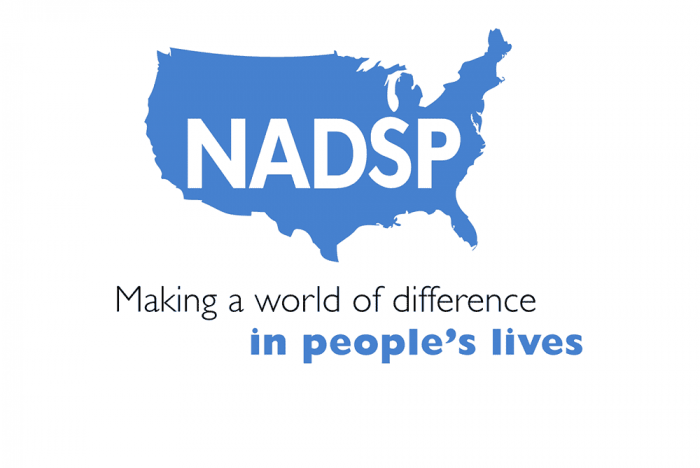Updates
Election Update: Register for the RCPA Member Webinar on Nov. 10

Updates Released to PCH and ALR ListServs
The following updates have been released regarding the Personal Care Home (PCH) and Assisted Living Residence (ALR) ListServs:
- As of 6/22/2022, the PCH and ALR ListServ(s) have been merged. This action was taken in order to maintain consistency and streamline the flow of information, as well as to decrease duplicate emails in your inbox.
- As of 6/22/2022, all provider emails will be subscribed to the ListServ. Please maintain your subscription and ensure that your email servers are set up to accept emails from OLTL-ADULT-RESIDENTIAL-LICENSING@LISTSERV.DPW.STATE.PA.US, as well as emails from PA.GOV addresses.
- Archives from the previous ListServ(s) can be accessed by visiting:
- If we are unable to maintain email contact, you will undoubtedly miss information that is crucial to the operation of your facility. Any changes to facility administrator or email contact information should be reported to your regional office or to PWARL Headquarters.
- Anyone who wishes to subscribe to the ListServ may do so by visiting OLTL Adult Residential Licensing ListServ.
Questions about this information should be addressed by calling the Operator Support Hotline at 866-503-3926 or by email.
**This communication was originally sent on 6/9/2022, but due to technical issues, the actions outlined below were not completed until 6/21/2022.**
NADSP News and Updates — May 20, 2022
Information Sharing Advisory Committee (ISAC) Meeting Report and Updates

ODP Updates and ISAC Information
DDAP Provides Updates on Regulatory Suspensions
The Department of Drug and Alcohol Programs (DDAP) sent out guidance on June 14, 2021 regarding three temporary regulatory suspensions granted by the governor’s declaration of a disaster emergency due to the coronavirus pandemic. House Bill 1861, which was signed into law today by Governor Wolf, further extends those regulatory suspensions from September 30, 2021 until March 31, 2022 unless terminated sooner. In addition to the suspensions noted in DDAP’s previous communication, one additional regulatory suspension from the Department of State, also relevant to the field, is added to the chart below and also suspended until March 31, 2022.
| Statute/Regulation | Statute/Regulation Purpose | Waiver benefit/explanation |
| 28 Pa. Code § 715.16(e) | Prohibits narcotic treatment programs (NTPs–methadone clinics) from permitting a patient to receive more than a 2-week take-home supply of medication. | In response to COVID-19, SAMHSA is allowing up to 28 days of take-home medications for patients on stable dosages, if the physician deems appropriate. |
| 28 Pa. Code § 715.9(a)(4) | Requires NTPs to make a face-to-face determination before admission to treatment, for those clients who will receive buprenorphine treatment. | In response to COVID-19, SAMHSA is allowing initial evaluations for a patient who will be treated with buprenorphine to be completed via telehealth. |
| 28 Pa. Code § 715.6(d) | Requires NTPs to have narcotic treatment physician services onsite. | In response to COVID-19, SAMHSA is allowing initial evaluations for a patient who will be treated with buprenorphine to be completed via telehealth. |
| 49 Pa. Code § 16.92(b)(1)
(Department of State) |
Before a patient can be prescribed any controlled substance in Pennsylvania, a person licensed to practice medicine and surgery in the commonwealth, or otherwise licensed or regulated by the State Board of Medicine, must take an initial medical history and conduct an initial physical examination,
unless emergency circumstances justify otherwise. |
In response to COVID-19, the Department of State suspended the initial medical history and physical examination requirement specifically for the treatment of opioid-use disorder with buprenorphine. |
Please email the Bureau of Program Licensure or call (717) 783-8675 with questions.
Leading in 2021: Hoping, Healing, Helping Conference Updates
In addition to the general sessions, including national updates that will provide valuable information to all, we have several break-out sessions that will be offered live each day during our 2021 Conference. These sessions include:
Tuesday September 28, 2021
- Preparing Infrastructure for Managed Care in ID/DD Providers
- Coordinating Measurement-Based Care: How the Maryland Community Behavioral Health Association Improved Treatment Outcomes and Leveraged Their Data
- Leadership in Technology for a New Era
- The U.S. Department of Health & Human Services Regional Approach to Address Healthy Equity
- Magical Metaphors: Creating a Shared Language Within a CBT Treatment Setting
- Without a Playbook: Navigating the Pandemic While Still Moving Forward
- Enhancing Whole Health and Wellness: Working Works When Using Social Security Work Incentives
- Linking Up! CANS Across the Tristate Area, and How This Can Optimize Care
- Creating an Employee-Centered Culture to Attract & Retain Staff
- Mobile Buprenorphine: A Novel Method for Engaging Populations in Substance Use Disorder Care
- Improving Access to Mental Health and Substance Use Disorder Services For OUR Older Adults. YOU Can Help!
Wednesday September 29, 2021
- Top Funding Resources for Assistive Technology in Pennsylvania
- Measuring What Matters Most: Leveraging the Power of Business Intelligence to Drive Organizational Improvements
- People Like Me: Working with Vulnerable Populations Using an Integrated Model to Behavioral Health Care
- How COVID-19 Changes Our View of Emergency Preparedness: Lessons Learned from COVID-19 and Key Strategies for Preparedness Moving Forward
- The Great Reset: Leadership Beyond the Pandemic
- “Link Outside the Box”: Using Remote Services and Technology to Provide Support Services For Individuals With IDD
- Promoting Motivational Interviewing Spirit and Skills with Paraprofessional Staff
- COVID-19 at 18 Months: How the Pandemic Has Changed Us and Society
- Strategies for Reducing Screen Time Fatigue
Thursday September 30, 2021
- A Collaborative Agency-Based Approach to Implementing a Pandemic-Induced Practice-Based Change to Telehealth
- Concussion (TBI) and Behavioral Health (The Missing Peace): Where Are We Now?
- Trauma-Informed Support for People with Intellectual Disabilities
- No Longer Just a Plan — Value Based Payments in Community HealthChoices in 2022
- The Cultural Competency in the Clinical Assessment & Treatment of Adults with IDD and Co-Occurring Mental Illness
- The Path to VBP is Paved With Quality: A National Perspective on Measures of Quality in IDD Services
- Post-Incarceration Care: How to Create an Effective Transitional Model
- Implementing Trauma-Informed PA (TIPA): PRTFs Becoming Trauma-Informed
- We Hear You!
- Expanding Integrated Primary Care for People with IDD: Replicable Models and Policy Implications
- The Unexpected Implications of the COVID-19 Pandemic
- Time Banking: A Grassroots Resource for Increased Personal Outcomes and Community Development
There will also be over 20 “on-demand” sessions on many timely subjects and topics, such as Leadership, Diversity, and Remote Supports and Services.
Visit the RCPA Conference website for specific updates to the schedule, posted as they become finalized.
College of Employment Services Updates
The Office of Developmental Programs is pleased to announce the availability of four additional courses in the College of Employment Services (CES).
Employment Services for People with Mental Health Disabilities: In this course we’ll talk about common obstacles facing job seekers with mental health issues, and proven principles and specific skills that can help you support them. In these four lessons, we’ll look at some research-supported ways to help this population succeed in the workforce.
Employment for People with Disabilities and Criminal Histories: Welcome to our course about employment services for people with disabilities and criminal histories. In these two lessons, you will learn about specific strategies that can help you support these job seekers.
Preparing for a Seamless Move from School to Adult Life: In this six part course you’ll learn about strategies and partnerships in schools and communities that support high expectations around work and post-secondary education. You’ll also learn about governmental policies and programs to support employment and post-secondary education.
Ticket to Work: You’ve probably been hearing about the Social Security Ticket to Work program for years. But what is it, and how can it help the job seekers you support? Get an overview of this useful work incentive in this special feature.
If you have questions concerning CES access, please contact the state wide administrator using the following email address and telephone number.
Email
Phone Contact: 866-865-6170
New Organizations:
Olivia Sullivan
860-202-4237
Existing Organizations:
Leigh Evans
404-799-4009
Certified Investigator Training Program Updates: New Manual, CI Forums, Initial Certification Courses
ODP Announcement 21-062 communicates that the following items are now available:
- 2021 Certified Investigator Manual
- Registration for the August Certified Investigators’ Forum
- Registration for the September– December 2021 Initial Certified Investigator Courses
The Office of Developmental Programs (ODP), along with Temple University, has released an updated 2021 Version 1.1 Certified Investigators’ (CI) Manual. This document replaces the manual that was published in 2018. Prospective, newly certified, and current Certified Investigators are now required to follow the 2021 Version 1.1 Certified Investigator Manual.
A Summary of the CI Manual Changes, including new and modified sections along with the Manual, can be found on MyODP by using the following path: – Training > Certified Investigator Program > CI Help and Resources > All Documents > Manuals, or by clicking on the highlighted blue link below: 2021 CI Manual and Overview of Changes.
The topic of the August 2021 CI Forum will be the changes to the CI Manual and investigation standards to align with Incident Management (IM) Bulletin 00-21-02. Sessions are scheduled for August 20, 2021 (10:00 am–11:30 am) and August 27, 2021 (2:00 pm–3:30 pm). There will be one session available each day.
















